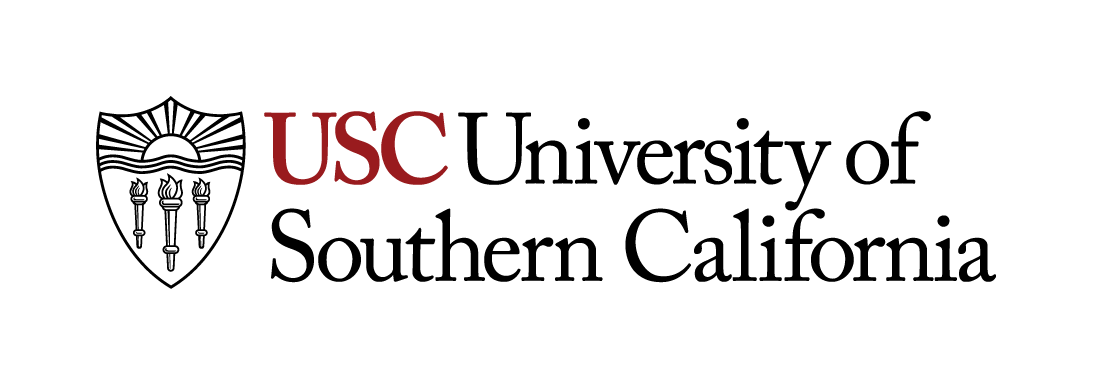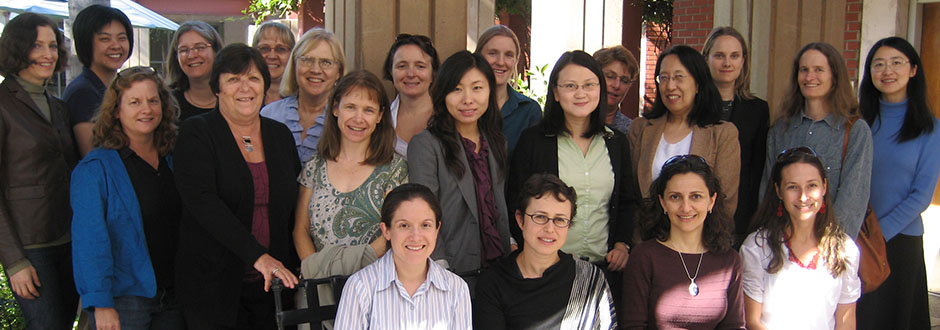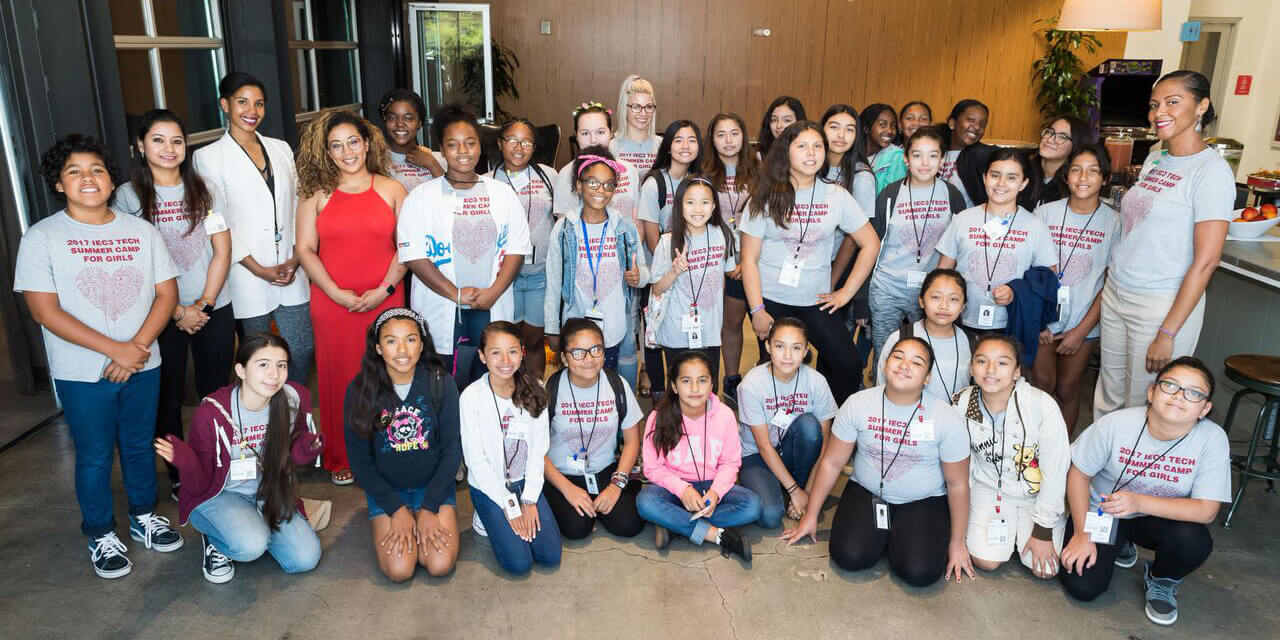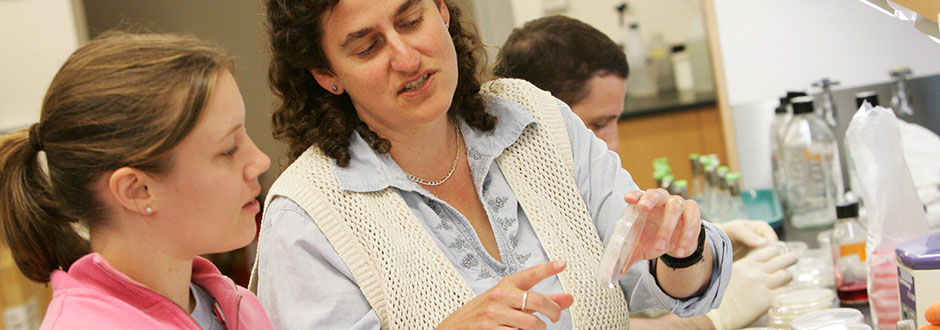Fellowship to Accommodate Pregnancy
Deadline: Applications accepted all year.
Award Amount: Variable. Up to a 50% time fellowship.
Directions: Contact Mallory Redel, WiSE Program Manager at wiseprog@usc.edu or 213-740-0996.
One of the most critical issues involved in increasing the representation of women in science and engineering is the work-family balance. For young scientists and engineers, this balance primarily involves childbirth, adoption, nursing and infant care. Specific to science and engineering is the need to avoid potentially hazardous situations during pregnancy and nursing, such as exposure to chemicals, electromagnetic radiation, or other possibly damaging settings. The WiSE Program developed this fellowship support program to help Ph.D. students and postdoctoral scholars and their advisors resolve potential conflicts arising between the constraints of pregnancy, childbirth, adoption, nursing, and infant care, and continued progress on the research program. The Fellowship Program engages participants at all levels, from faculty advisors to department chairs, deans, and university administration. The fellowship aims to help Ph.D. students and postdoctoral scholars who are pregnant or have recently given birth or adopted a child to continue her or his career with the least possible interruption. WiSE support addresses the need for support during a time when students or scholars cannot work on their research or as a laboratory-based teaching assistant and when other sources of funding are not available. Depending on need, fellowships typically range from one month to a full semester.
The WiSE Program maintains a list of recommended providers (childcare, pediatricians, obgyns, etc.) recommended by members of our community. Please contact WiSE Program Manager, Mallory Redel at redel@usc.edu or 213-740-0996 to request a copy.
Goal: By its existence, this fellowship aims to (1) send a clear message to young scientists and engineers that the academic environment is a family friendly, (2) motivate Ph.D. students and postdoctoral scholars to continue their academic training, (3) to encourage applicants to continue considering academia as a viable career option. It is hoped that this message will be conveyed at all levels of the university, from faculty advisers, to department chairs, deans, and university administration.
The role of the WiSE Program is in education, advocacy and financial support. Issues such as continuous registration, course work, student status, etc. are best dealt with by the USC Graduate School and the school dean’s office. This WiSE Program addresses only the need for support during a time when students or postdoctoral scholars cannot work on their research or as a laboratory-based teaching assistant and when other sources of funding are not available. All Ph.D. students are expected to have first applied to the USC Graduate School’s Parental Leave Program. If awarded, a fellowship from the WiSE program will be coordinated with other university programs so as not to be duplicative.
Eligibility: Postdoctoral scholars with full funding and full-time Ph.D. students with 50% time assistantship funding who become pregnant, give birth, or adopt a child and are enrolled in one of the WiSE-eligible departments are eligible to apply. The applicant must demonstrate, in the “WiSE justification,” how receipt of financial support will serve to increase the representation of women in science and engineering.
- Graduate students: Doctoral students with 50% time funding, who cannot be funded from grants or departmental Teaching Assistant Support, and who have been denied leave from the USC Graduate School’s Parental Leave Program may apply to the WiSE Program for a pregnancy or adoption support fellowship for up to one semester of a 50% time university stipend at the university minimum graduate student stipend rate. The fellowship is to be used during the time of pregnancy and/or in the first year after childbirth or adoption. If a longer time is necessary, e.g. due to a prolonged leave during pregnancy, WiSE will work with the student’s school and the USC Graduate School to obtain additional support.
- Postdoctoral scholars: Postdoctoral scholars may apply to the WiSE Program for a pregnancy or adoption support fellowship in the amount of up to 50% of the 12 month salary for one semester, provided that the mentor pays the other half. The exact amount of financial support will depend upon the postdoctoral scholars eligibility for disability benefits.
**In the case of a difficult pregnancy that requires a longer leave, or if a student or scholar works in a hazardous setting and no other type of work that the student or postdoctoral scholar can do during the pregnancy is available, the adviser and department chair may ask for additional support. In this case fellowship support is provided by WiSE, the Department, and the Graduate School in a way determined on a case-by-case basis.
Application Process: The WiSE Program will serve as an advocate for Ph.D. students and postdoctoral scholars. A Ph.D. student or postdoctoral scholar who becomes pregnant, gives birth or adopts a child should contact her or his adviser, and, in the case of graduate students, the appropriate staff person in the department, as early as possible to discuss specific needs. Graduate student should apply to the USC Graduate School’s Parental Leave Program.Applications for this award are usually initiated by a departmental graduate studies advisor. The student/postdoctoral scholar should discuss with the adviser the need to avoid lab exposure during pregnancy and possible sources of financial support. If at all possible, the student should stay enrolled during this period with modified duties. If no other forms of support are available and a need for financial assistance is identified, the department chair should be notified and an application to the WiSE Program submitted.
WiSE Fellowships to Support Pregnancy, Birth of a Child, and Adoption, are designed to assist students and scholars where other forms of support are not available. Whenever possible faculty advisors and/or departments should provide students with full or partial support. These fellowships are intended for use when these funds are not available. Lack of other sources of funding must be addressed by the applicant in her or his personal statement and by the faculty advisor and department chair in the letters of recommendation.
Once an initial consultation with the WiSE Program Manager has been held, applicants should provide the required documentation. Application materials should be submitted electronically to WiSE using the online system. All documents should be in Microsoft Word or Adobe PDF format. A complete application includes the following required documents:
- A statement requesting support by the Ph.D. student or postdoctoral scholar that addresses (1) the status of the applicant in the program of study, (2) how the applicant has been funded during prior years in her or his program of study, (3) the desired duration of the fellowship, (4) other sources of support applied for by the candidate, (5) the need for financial support.
- A statement of “WiSE Justification” describing how the applicant’s receipt of financial support will further the goals of the WiSE Program to increase the number of women in science and engineering.
- A letter of recommendation from the faculty advisor addressing both the student’s merit and the need for financial support. Advisors should also confirm that they will continue to support the student upon the conclusion of the fellowship with at least one semester of additional RA/TAship. If this support is not available, the Department Chair must confirm that support will be provided by the Department.
- Statement of Support from the applicant’s department chair endorsing the request for support, affirming the terms, and if necessary addressing the need for departmental support.
In cases in which the adviser or the department can support the student or postdoctoral scholar, e.g. with department fellowship, there is no need to apply.






